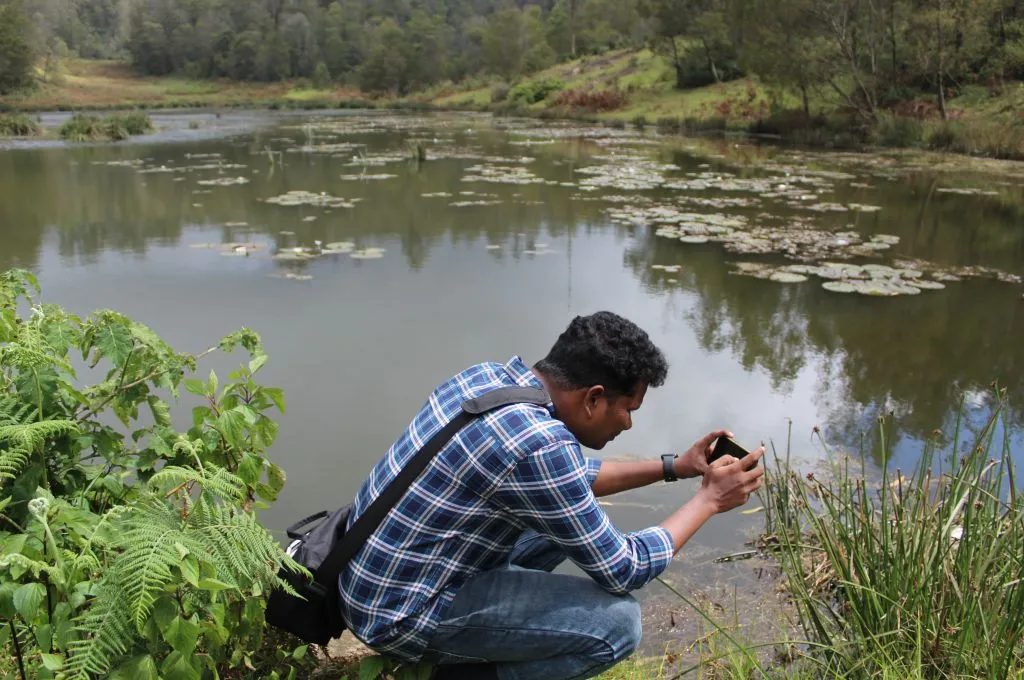Exceptional nonprofits rely on exceptional leaders. In the Indian social sector, a senior team’s competence is often the make-or-break factor in an organisation’s ability to make strides toward such ambitious goals as providing equitable healthcare, ensuring high-quality education for children, or providing access to safe drinking water and basic sanitation.
Yet widespread doubts persist about whether there is sufficient investment in nonprofit leadership teams to achieve these important outcomes.
Against this backdrop, The Bridgespan Group, with support from Omidyar Network, undertook an extensive data-driven study of nonprofit leadership development in India. Our findings were sobering.
Drawing on a survey of approximately 250 leaders from Indian nonprofits and the Indian offices of international nonprofits—supplemented with more than 50 interviews with funders, intermediaries and nonprofit executives, as well as secondary research—we found a systemic gap between the sector’s leadership development aspirations, and the reality of its investments and efforts. The implications represent a threat to these organisations’ ability to sustain and scale impact.
While ultimately, nonprofit senior teams are responsible for developing their bench of leaders from within, external resources, support and incentives can help them succeed.
In this article, we explore how funders in particular are uniquely positioned to play a vital and influential role in nonprofit leadership development. In partnership with intermediaries, they can perform two critical roles:

Image Courtesy: Bridgespan Group
1. Funders can support grantees
Funders can provide the necessary expertise and financial resources to help nonprofits develop leaders.
A) Pay what it takes
Funders should ensure they provide nonprofits with resources that truly contribute to impact. Those who focus on programmes, and limit spending on ‘overhead’ or indirect costs, actually limit nonprofits’ capacity to build their leadership capabilities. And few would argue against the evidence that high-performing leaders increase the odds that a nonprofit will attain its goals and scale impact.
- Increase funding for ‘good overhead’: Fifty-three percent of surveyed nonprofits report that they received no funding for leadership development in the past two years.We recognise that there can be regulatory constraints around such funding (such as limits imposed by the CSR law).However, placing such artificial thresholds for funding indirect costs (for example, at five or ten percent) limits not only a nonprofit’s capacity to develop leaders, but also its very ability to grow into an effective, high-performing organisation and scale impact.Funders can increase funding for capacity building in many ways: through unrestricted funding, leadership development or capacity building grants, allocations within programme grants, or direct subsidies for leadership programmes or other supports.
- Invest in building nonprofits’ capacities to develop leaders from within: Once funders decide to invest more in nonprofit leadership development, the next question arises: how should they target those investments, based on the nonprofit’s needs?Nonprofits’ needs vary widely and funders should match their support to the unique circumstances and life stage of the nonprofit.Funders can invest in people, processes or performance and talent management systems, which help identify and plan stretch opportunities on the job for staff to grow into leadership (the most important way to develop leaders and highly valued by the surveyed organisations).They can also fund mentoring programmes and formal training, such as external courses and conferences. The latter comprise the most common forms of funding and can be valuable. However, one-off conferences and the like are insufficient for institutionalising leadership development practices.
Related article: Pay-what-it-takes-philanthropy
B) Incentivise the development of leaders
Less than 30 percent of nonprofits report that funders are involved in their organisations’ leadership development efforts. Funders can do far more:
- Leverage grant processes to incentivise leadership development: Funders can rework their due diligence and results monitoring processes to include explicit requirements for developing leaders.For example, funders can assess not only the track record of the nonprofit’s leadership team but also its efforts to develop an internal bench of leaders. Where due diligence reveals gaps in these practices, funders can support high-potential nonprofits in building these capacities.
- Convene grantees to encourage action: Funders can promote the benefits of leadership development and encourage experience-sharing by bringing their grantees together, especially with external experts or facilitators. Awards and recognition for nonprofits that excel in leadership development can motivate them and inspire others.
C) Connect nonprofits to relevant expertise
Nonprofits often require hands-on guidance to implement leadership development efforts that are tailored to each organisation’s specific needs. Funders can help nonprofits connect to required expertise via a range of approaches:
- Funder expertise: Funders can hire staff with leadership development experience to support their nonprofit partners.
- Formalised networks: Funders can match nonprofits with experts from formal networks of individuals or organisations. An alternative is a shared-services structure, where different nonprofits can draw upon or ‘share’ a set of specialist organisations—contracted by, say, the funder—for talent development, recruitment or other capacity-building roles.
- Informed referrals: Finally, funders can connect nonprofit leaders directly with relevant experts.
2) Funders can help build the ecosystem
The size and scale of nonprofit leadership needs in India is vast. Funders must move beyond traditional grantor-grantee relationships in order to make leadership development a priority across the social sector.
A) Invest in developing new leadership programmes that:
- Target specific nonprofit audiences: To fill white spaces, programmes can reach leadership teams (rather than individuals), target senior leaders (rather than all management levels), and focus on Indian nonprofit leaders solely (rather than a global or broad social sector scope).
- Focus on practical and application-based learning: Programmes can support leaders’ efforts to deploy new tools and insights through applied learning and practical advice.
- Emphasize organization-building competencies: Programme modules can zero in on organisational leadership to address much needed skills such as strategic planning, managing change, and developing others.
- Develop contextualised material: Funders can invest in relevant programme content, such as case studies of Indian nonprofits. This content can draw from available resources as well as the experiences of nonprofit leaders participating in the programme.
- Engage and support programme alumni: Programmes can maintain and extend learning for nonprofit leaders by developing alumni platforms or networks, establishing links with programme staff for additional guidance, or running regular sessions where alumni share their experiences.
Related article: Leadership development – Five things all nonprofits should know
B) Develop tailored resources
Leadership programmes alone cannot fulfil the ideal 10 percent of formal development training, due to the limited seats and required time commitment from participating nonprofits.
- Provide a more accessible suite of resources for nonprofit leaders: This can start with identifying any free global resources, including social sector publications, assessment tools, and guides.
A portal could consolidate and disseminate the best of these resources. Working with intermediaries, funders can create new resources to suit nonprofits by building on existing models and knowledge.
C) Build the case for developing leaders
It is difficult to quantify the results of long-term leadership development efforts, or the ‘return’ on this investment. The case must be built, for both nonprofits and funders.
- Articulate the value of developing leaders: Until there is a strong evidence base, funders can identify and develop more ‘success stories’. Such examples might demonstrate how nonprofit efforts for developing leaders resulted in more timely and effective decision making, or an increased alignment between the leaders’ and the organisation’s goals.These can also dispel long held myths, such as the notion that employees will leave for greener pastures once the nonprofit invests in their development, or that leadership development practices are inherently expensive.
- Communicate this value across the sector: Funders can bring this topic to the forefront, demonstrate that it is a priority, and highlight the returns to nonprofits. When celebrating exemplary nonprofit leaders, funders can emphasise how these leaders groomed the next generation.
As the trailblazers of India’s social sector enter another decade of leadership, nothing will be more mission critical to sustaining impact than investing in a strong second line of leaders. Now is the time to act.






